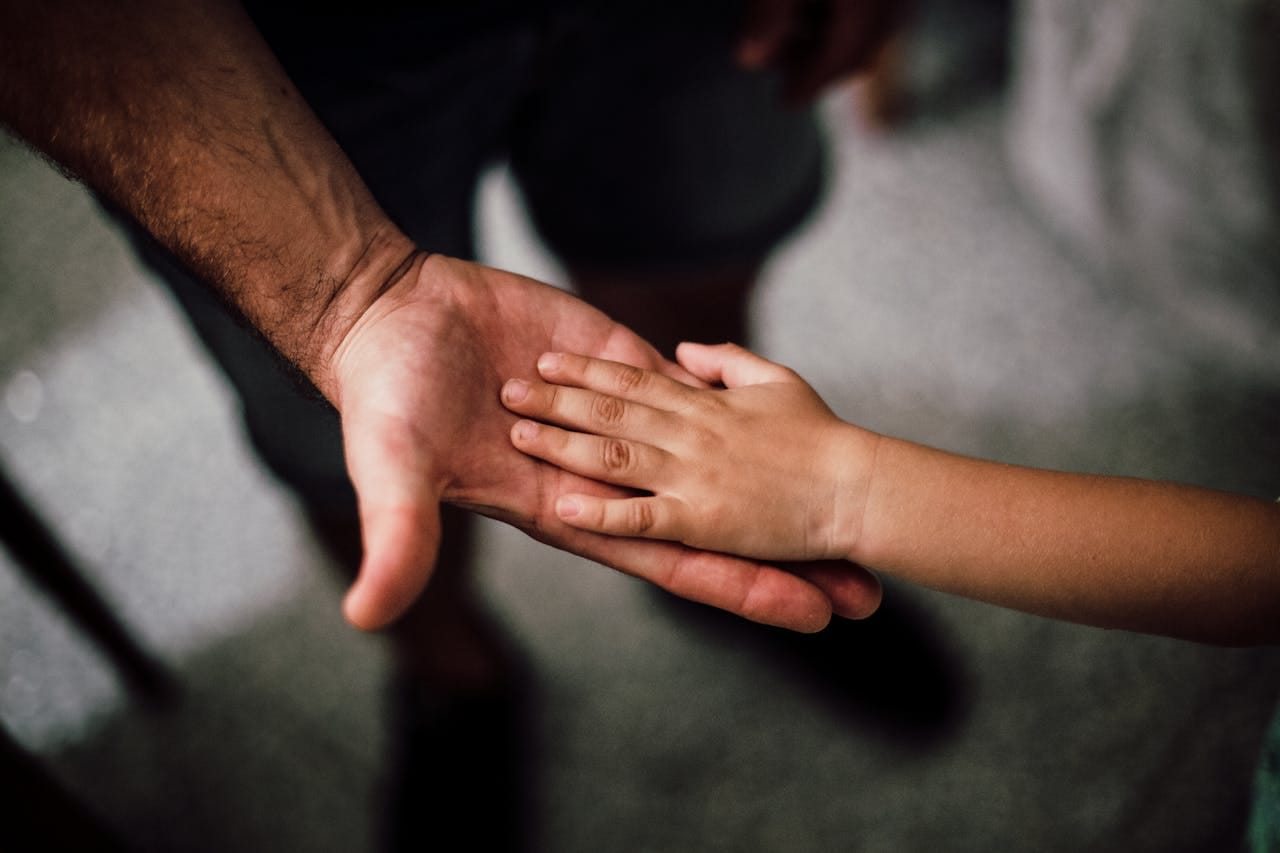Parenting After Religious Abuse
Religious abuse is a form of trauma that can deeply impact an individual's psychological, emotional, physical, and spiritual well-being. For those who have experienced this harm as children or adults, the effects can extend to their parenting later in life. It can influence how you raise your children, make decisions, and interact with loved ones. This article explores the impact of religious abuse on parenting and offers strategies to support your healing and child-rearing.
Defining Religious Abuse
Religious abuse involves the misuse of religious beliefs or practices to manipulate, control, or harm others. This form of abuse can manifest in various ways within religious settings, including spiritual manipulation, fear-based teachings, emotional or psychological control, and physical or sexual abuse. For instance, individuals may be told that questioning religious authority is sinful, leading to a deep sense of guilt and shame. It can involve using scripture to justify mistreatment or to impose rigid, harmful expectations on followers. This type of abuse can also occur as an aspect of intimate partner violence or child abuse.
How is Religious Abuse Different from Other Forms of Abuse?
All forms of abuse are about power and control, meaning the abuser uses tactics to gain or maintain power and control over the other person. Religious abuse is unique in its ability to intertwine with an individual's spiritual identity. This can create a profound internal conflict, as victims may struggle to separate their faith from the abuse they endured. Unlike other forms of trauma, religious abuse often impacts a person’s beliefs about eternity and what will happen to them after death. This can exacerbate feelings of fear and helplessness, and also make religious abuse challenging to recognize and address.

Impact of Religious Abuse on Parents
Core Values
Religious abuse can deeply affect a person's core beliefs, often leaving them with internalized guilt, fear, and confusion about their values and identity. When core beliefs are shaped by fear-based teachings or authoritarian control, these unresolved issues can carry over into parenting. If you've experienced religious abuse, you might unknowingly project your anxieties and rigid beliefs onto your children, struggling to find a balance between guidance and control. This can lead to either overly strict parenting, mirroring the rigidity you experienced, or overly permissive, as you try to avoid repeating the patterns of control. The unresolved impact of religious abuse can make it difficult for parents to foster a healthy, open environment where their children feel safe to explore and express their own beliefs.
Sense of Self
Religious abuse can severely damage a person's sense of self, often leaving them with feelings of unworthiness, self-doubt, and confusion about their identity. When your sense of self is eroded by criticism, guilt, or the belief that you're inherently flawed, you may struggle to assert your needs and boundaries. This can impact your parenting by making it difficult to model confidence and self-respect to your children.
A weakened sense of self might prompt you to overcompensate by being overly controlling or cause you to struggle with setting boundaries with your child. You might fear that you’re not a “good enough” parent.
Anxiety and Fear-Based Parenting
If you've been subjected to fear-based religious teachings you may find yourself parenting out of anxiety rather than love. The fear of divine punishment or the belief that you must adhere to strict religious guidelines can lead to overprotective or controlling behaviors.
If you're no longer religious, you may still create a high-control and fear-based home environment due to unresolved past religious abuse. This approach to parenting can stifle a child's autonomy and creativity, potentially leading to issues such as anxiety, low self-esteem, and difficulties with decision-making.
Emotional Disconnection
Different forms of religious abuse can lead to emotional suppression because they create environments where expressing your feelings is discouraged or punished.
- Fear of Judgment or Sin: In some religious settings, emotions like anger, sadness, or doubt may be labeled as sinful or signs of weak faith. A survivor might suppress their feelings to avoid judgment or to prevent others from thinking they don't have a strong faith.
- Authoritarian Leadership: When religious leaders exert control and demand obedience, individuals might suppress emotions to avoid punishment, rejection, or public shaming. They learn that expressing their true feelings could lead to negative consequences.
- Guilt and Shame: Religious abuse often involves instilling guilt or shame for having "unacceptable" emotions or thoughts. This often leads individuals to think their natural responses are “bad,” leading them to push their emotions down.
- Fear of Eternal Consequences: The belief that certain emotions or behaviors could result in eternal punishment (e.g., going to hell) can lead individuals to disconnect from emotions to avoid damnation.
- Normalization of Suffering: In some religious settings, suffering is glorified or seen as a test of faith. This can lead people to believe they must endure their pain quietly as a sign of their spiritual strength.
- Manipulation of Religious Texts: Abusers may tell individuals that their feelings go against religious teachings or texts. This can create a conflict between a person’s natural emotions and what they believe they should feel.
In each of these cases, suppressing one’s emotions can be a coping strategy, helping an individual survive an abusive environment. However, it can lead to long-term negative effects on individuals and their relationship with their children. For example, when you’ve been conditioned to ignore your emotions and needs, you may struggle to be present and emotionally available for your child.
Struggles with Intimacy and Attachment
Religious abuse can make it difficult to form healthy attachments with your children. You may struggle with trust, compassion, or vulnerability, which are key components of a secure parent-child bond.
Passing Down Harmful Beliefs
It's not uncommon for survivors of religious abuse to pass down harmful beliefs and practices to the next generation. When you've been traumatized by religious teachings, you may unconsciously impose the same rigid beliefs on your children. This can create a family environment where fear, guilt, and shame are prevalent. It can also hinder your child's ability to develop a healthy sense of self.
Coping Strategies for Survivors
While the impacts of religious abuse can be far-reaching, healing is possible. Below you'll find different methods to help you cope and build support into your life.
Attending Religious Trauma Therapy
A trained trauma therapist who specializes in religious abuse can help you unpack your experiences, challenge harmful beliefs, and develop healthier coping strategies. You'll have the space to examine your spiritual beliefs and decide what you truly believe and what you want to let go of.
Specific therapeutic approaches, such as cognitive-behavioral therapy (CBT), trauma-focused therapy, internal family systems (IFS), and eye movement desensitization and reprocessing (EMDR) can help address and heal past trauma.
Rebuilding Faith or Spirituality
For many parents, healing from religious abuse involves re-evaluating and reconstructing their faith or spirituality. This process can be challenging. It may require confronting deeply ingrained beliefs and finding new ways to connect with the divine or spiritual practices. However, rebuilding a healthier spiritual framework can be a powerful step in breaking the cycle of abuse and creating a more supportive environment for your children.
Building a Support Network
Those leaving a religious group often grieve a loss of community. When you're healing from religious abuse, it's important to find supportive people who understand what you're going through and offer encouragement and validation. Peer support groups for survivors of religious abuse (online or in-person), can offer a safe space for you to share experiences, gain insights, and rebuild your sense of community.
Cultivating Self-Compassion
Self-compassion is a critical component of healing from religious abuse. Parents who practice self-compassion are more likely to forgive themselves for perceived shortcomings and approach parenting with greater empathy and patience for their children. Practical steps for building self-compassion include:
- Mindfulness exercises
- Self-reflection
- Nurturing your emotional, spiritual, and physical health
- Practicing forgiving and accepting yourself

Breaking the Cycle of Religious Abuse
The abuse that you've endured was not your fault, and no matter where you are in your healing or parenting journey, there is an opportunity to stop the cycle of harm for your child. Below you'll find parenting strategies that work to prevent future religious abuse or mitigate the harm of past abuse.
Establish Boundaries with Religion
For parents impacted by religious abuse, setting and maintaining boundaries with religion is crucial. This may involve limits on what family members can discuss with your child or not expecting your child to participate in religious practices. You can support these boundaries by encouraging your child to think critically and explore their own beliefs. Teaching children that they have autonomy regarding their spirituality can help them develop a healthy relationship with religion, free from fear and coercion.
Foster Open Communication
Having honest and nonjudgmental conversations about religion, spirituality, and values helps create a healthy family dynamic. Encourage dialogue, allowing your child to ask questions and express their thoughts without fear of judgment or retribution. This approach helps children navigate their own spiritual journeys and fosters an environment of mutual respect and understanding.
Model Healthy Relationships and Beliefs
Show your children what healthy relationships and beliefs are by demonstrating respect, empathy, and healthy boundaries. Creating a family culture that prioritizes emotional and spiritual well-being involves showing children that it is possible to have a meaningful spiritual life without fear or harm. This approach empowers children to develop their own spiritual identities in a supportive and loving environment.
Find the Support You Need | Seattle Religious Abuse Therapy
Dr. David Zacharias has been providing trauma-informed care for over 20 years. His patient-centered approach empowers survivors throughout the treatment process. At Existential Psychiatry, you'll receive personalized support that aligns with your needs and goals. If you're searching for compassionate therapy for religious abuse, please reach out for a free consultation today.
Written by Existential Psychiatry Staff
Sources
- Simonič, B., Mandelj, T. R., & Novsak, R. “Religious-related abuse in the family.” Journal of Family Violence, 2013. Accessed August 25, 2024.
- Truong, M. & Ghafournia, N. “Understanding Spiritual and Religious Abuse in the Context of Intimate Partner Violence.” Australian Institute of Family Studies, 2024. Accessed August 25, 2024.